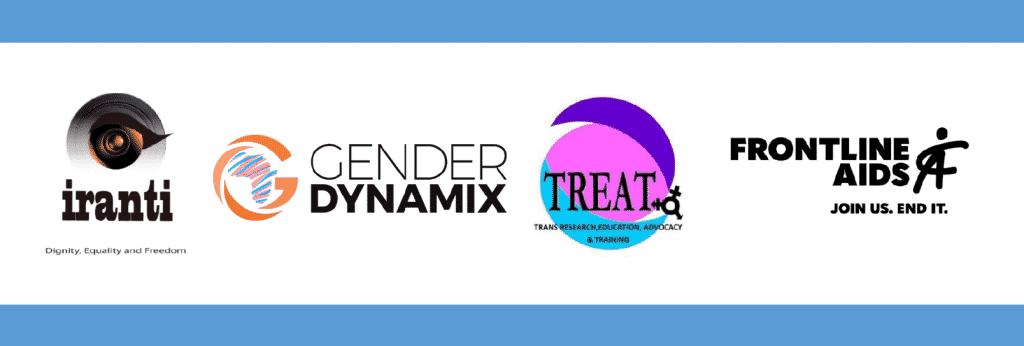Download a PDF of this statement here.

Iranti, Gender DynamiX and TREAT, as members of SATF and in partnership with Frontline AIDS, have published a desktop survey into the experiences of Southern African trans-led advocacy groups during the 2020 COVID-19 viral pandemic, assessing challenges to programmes and advocacy work across the region.
We thank the participants in this study who have helped us shine a light on the severe challenges that the COVID-19 pandemic has brought to trans-led and trans-focused organisations in our region – LGBTI+ individuals and communities already disproportionately struggle with access to healthcare, secure income, food security, safety in the home environment and many other metrics by which one might judge the equality and security of members of a society. This pandemic has only exacerbated these issues, our study has found.
Gathering input from 19 organisations in nine countries (South Africa, Lesotho, eSwatini, Botswana, Namibia, Zimbabwe, Mozambique, Tanzania and Seychelles), the desktop study found that the majority of respondent organisations’ staff have had to work from home due to risks and restrictions around the spread of the COVID-19 virus – home, however, is rarely a suitable and safe alternative for activists living in societies which continue to hold widespread transphobic and homophobic beliefs, and many respondents claimed that they do not feel safe at home. Further, less than one third (29%) could say they consistently experienced privacy at home in order to work, and more than 79% of staff, it was found, do not have a dedicated desk and chair at which to do their work.
The lack of a dedicated workspace can have significant psychological downsides when it comes to mental wellbeing as well as productivity, though perhaps more significantly less than half (46%) of respondents’ staff members are being paid to continue working during the pandemic, with the majority volunteering in some capacity. Further 70% of respondent organisations were unable to offer data funds to staff working from home, meaning that individual activists have largely had to fit the bill for their own internet access; many without a stable income.
This issue has been exacerbated by a highly concerning trend noted among several respondents that some of their usual donors – many from the Global North – have pulled funding due to the inability of activists to meet programmatic criteria set before the pandemic. Though many funders, we note, have been flexible in their approach during this global crisis, we urge those who have – for lack of a better word – abandoned these organisations to reconsider their stance, as their actions have a clear knock-on effect for trans and queer communities more broadly. Across Southern Africa, many governments continue to criminalise our identities and work against human rights activists seeking to bring about safety, dignity and freedom for their communities. Without appropriate funding to continue their work during this pandemic, we fear that the long-term human cost will be unimaginable.
In that light, SATF is working in ensuring that it’s 18 members are well supported, and in partnership with Gender DynamiX will strengthen these partnerships and seek ways of resourcing trans organisations in Southern Africa. This desktop study serves as a first step in needs assessment upon which such partnerships can be built. We thus call on funders, our governments, and our societies, to look at this data and take action as well. Together we can overcome this crisis!
For enquiries, please contact S’bu Kheswa at sibusiso@iranti.org.za
For enquiries please contact: Sibusiso at sibusiso@iranti.org.za, or Immaculate at programmes@genderdynamix.org.za
